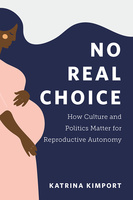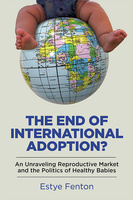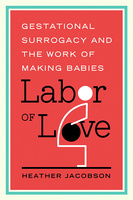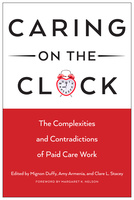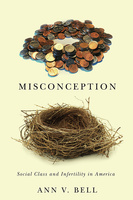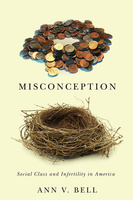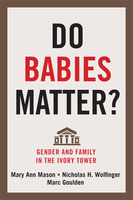Undoing Motherhood
Collaborative Reproduction and the Deinstitutionalization of U.S. Maternity
No Real Choice
How Culture and Politics Matter for Reproductive Autonomy
Based on candid, in-depth interviews with women who considered but did not obtain an abortion, No Real Choice analyzes the structural obstacles to abortion and the cultural ideologies that try to persuade women not to choose abortion. It illustrates how real reproductive choice is denied, for whom, and at what cost.
Like Family
Narratives of Fictive Kinship
The End of International Adoption?
An Unraveling Reproductive Market and the Politics of Healthy Babies
Queer Kinship and Family Change in Taiwan
Saving Face
The Emotional Costs of the Asian Immigrant Family Myth
Labor of Love
Gestational Surrogacy and the Work of Making Babies
Raising the Race
Black Career Women Redefine Marriage, Motherhood, and Community
Caring on the Clock
The Complexities and Contradictions of Paid Care Work
Misconception
Social Class and Infertility in America
Misconception
Social Class and Infertility in America
Queering Marriage
Challenging Family Formation in the United States
In-depth interviews with participants in non-traditional families are used to argue that same-sex marriage cannot be understood as simply entrenching or contesting heterosexual privilege. Instead, Katrina Kimport contends that these new legally sanctioned relationships can both reinforce as well as disrupt the association of marriage and heterosexuality. She provides a nuanced, accessible, and theoretically grounded framework for understanding the powerful effect of heterosexual expectations on both sexual and social categories.
Daughters and Granddaughters of Farmworkers
Emerging from the Long Shadow of Farm Labor
The work and family lives of Mexican American women in a community near the U.S.-Mexico border in California’s Imperial County are examined. Wells provides stories of the struggles, triumphs, and everyday experiences of these women and explores the social structures that create the barriers, constraints, and opportunities that have shaped their lives. These women aspire to achieve the American Dream, but the realities of life in a rural, agricultural border community strictly limit social mobility for these descendants of immigrant farm laborers.
Amigas y Amantes
Sexually Nonconforming Latinas Negotiate Family
Amigas y Amantes (Friends and Lovers) explores the experiences of sexually nonconforming Latinas in the creation and maintenance of families. It is based on forty-two in-depth enthnographic interviews with women who identify as lesbian, bisexual, or queer (LBQ) and draws from fourteen months of participant observation at LBQ Latina events that Katie L. Acosta conducted in 2007 and 2008 in a major northeast city. The book examines how LBQ Latinas manage loving relationships with the families who raised them, and with their partners, their children, and their friends.
Do Babies Matter?
Gender and Family in the Ivory Tower
Do Babies Matter? is the first comprehensive examination of the relationship between family formation and the academic careers of men and women. The book draws on over a decade of research using unprecedented data resources, including the Survey of Doctorate Recipients, a nationally representative panel survey of PhDs in America, and multiple surveys of faculty and graduate students at the ten-campus University of California system.
Adult Supervision Required
Private Freedom and Public Constraints for Parents and Children
Adult Supervision Required considers the contradictory ways in which contemporary American culture has imagined individual autonomy for parents and children. Using popular parenting advice literature as a springboard for a broader sociological analysis of the American family, Markella B. Rutherford explores how our increasingly psychological conception of the family might be jeopardizing our appreciation for parents’ and children’s public lives and civil liberties.
Paid to Party
Working Time and Emotion in Direct Home Sales
On any given night in living rooms across America, women gather for a fun girls’ night out to eat, drink, and purchase the latest products. Offering a new approach to a flexible work model, Direct Home Sales companies tell women they can, in fact, have it all and not feel guilty. In DHS, work time is not measured by the hands of the clock, but by the emotional fulfillment and fun it brings. Drawing from numerous interviews with consultants and observations at company-sponsored events, Paid to Party takes a closer look at how Direct Home Sales promises to change the way we think and feel about the struggles of balancing work and family.

